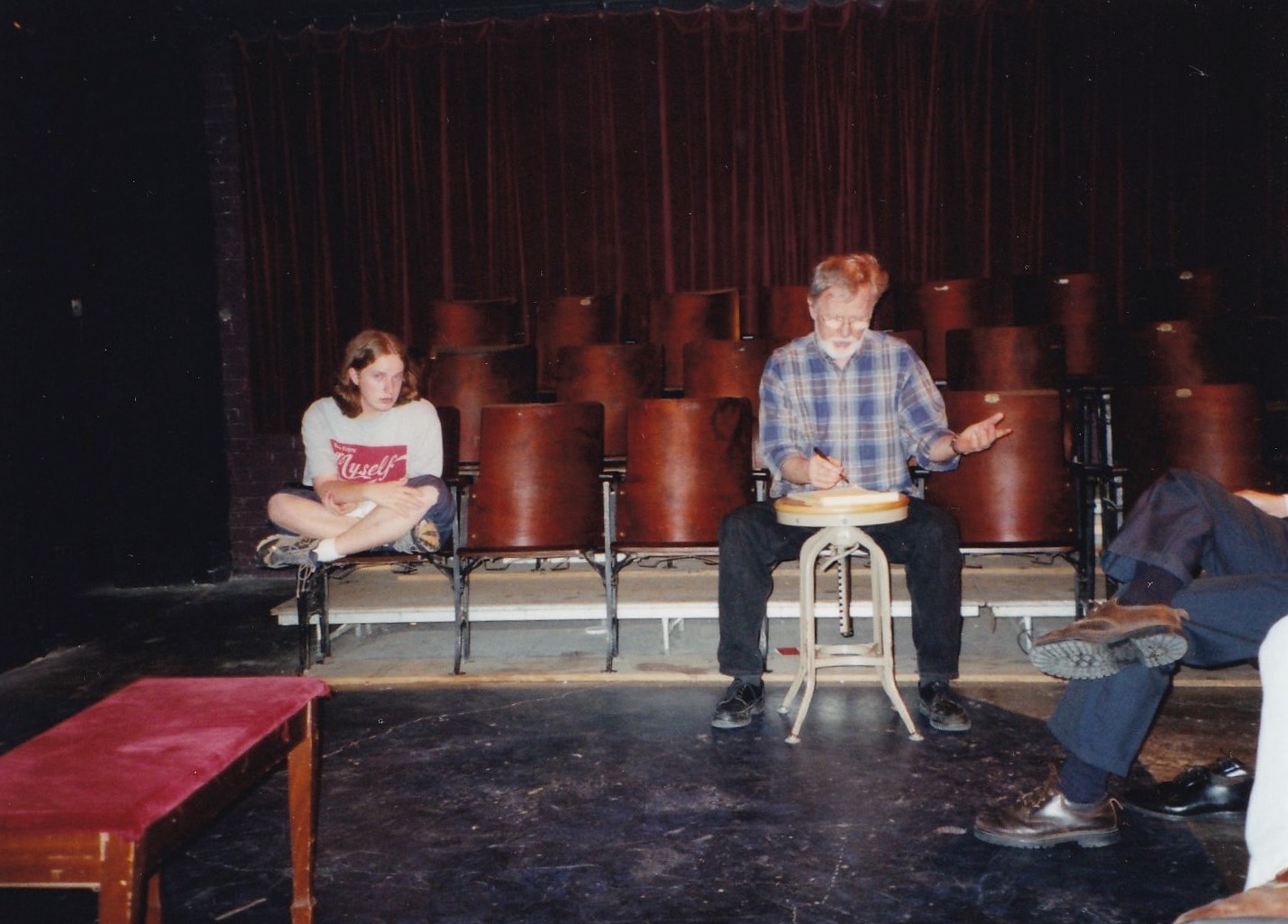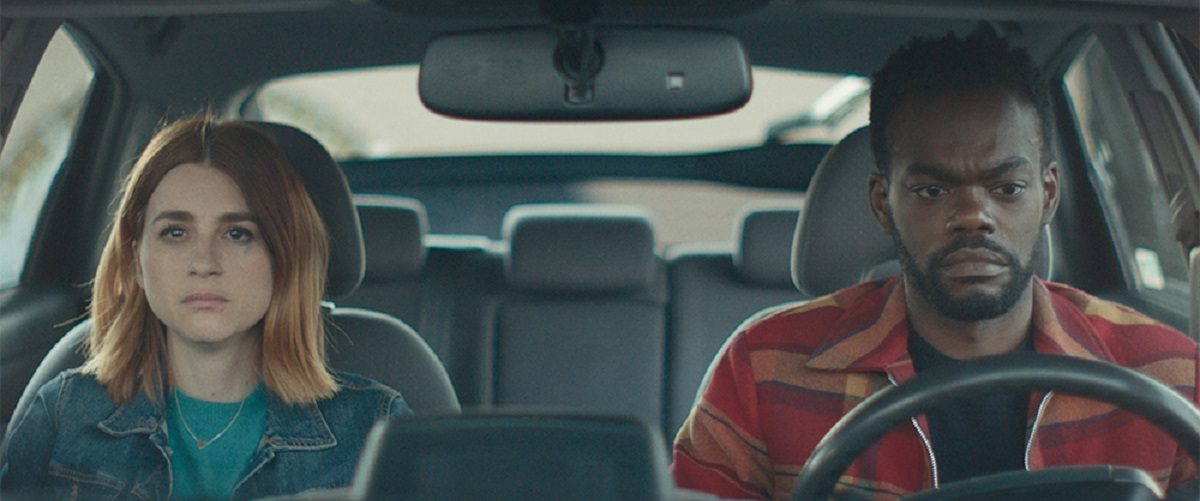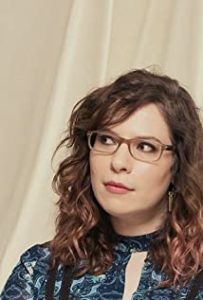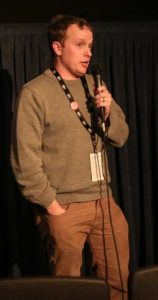There are theme weddings, and there are destination weddings—and then there are combination theme-destination weddings modeled on your adolescent summer camp experience, complete with field games, cabins and bunk beds, and distant relatives crowded together in the mess hall.
This is the setting of much of We Broke Up, a new romantic comedy film co-written by Laura Jacqmin and Jeff Rosenberg and directed by Rosenberg. The two filmmakers met doing high school theatre together in Shaker Heights, Ohio, and went on to become multi-hyphenate, interdisciplinary creators: Rosenberg, who also directed the film, made his way to such television series as HBO’s Veep, while Jacqmin worked in the Chicago theatre scene. Though her work has been produced at lauded companies like Steppenwolf Theatre and the Humana Festival, Jacqmin (she/her) came to feel that theatre was too full of “heartbreak” to be financially or emotionally sustainable.
“I think we really thought that TV was something that we were going to do to sort of finance our theatre careers,” Jacqmin said of her Chicago women’s writing group, which included names like Tanya Saracho, a playwright and co-founder of Teatro Luna who went on to create the cable series Vida. “We were gonna spend six months on a show and then come back to Chicago and make plays.”
While that approach worked on and off for a few years, Jacqmin noted that much of her original writing group is now based in Los Angeles, where she worked writing for television and video games before reconnecting with Rosenberg for her first feature film.

Rosenberg (he/him)’s breakup with theatre was more amicable: “I saw the third ever production of The Pillowman in London. I was a 20-year-old from Cleveland, Ohio, and I retired from theatre.” While the rise of camcorders empowered Rosenberg’s nascent film abilities, both he and Jacqmin went on to study playwriting at Ohio University. It was there that Rosenberg first connected with William Jackson Harper, a playwright and actor best known for NBC’s existential comedy The Good Place.
“My first ever play at Ohio University, Qui Nguyen was the grad student helping our production, and when Will got cast on The Good Place, I was like, ‘I know that guy! He’s the guy that used to do all those plays with Vampire Cowboys!‘” The comic book-infused theatre company, run by co-artistic directors Nguyen and Robert Ross Parker, moved from Ohio to New York in 2002 and began producing “geek theatre” Off-Broadway and running a stage combat studio. Harper went on to roles at Manhattan Theatre Club and the Public Theater before turning to Hollywood and landing the role of Chidi, the neurotic philosophy professor navigating a fraught afterlife on The Good Place, where Rosenberg was an assistant director.
In We Broke Up, Harper stars as Doug, a level-headed but optimistic man who wants to solidify his future with the woman he’s been dating for 10 years. But Lori, played by Aya Cash (the series You’re the Worst, plus many New York theatre credits), doesn’t feel that her love for Doug should force her to become a career-minded, future-oriented wife; she prefers her coffeeshop job to a loftier calling, and the couple’s small apartment to a house fit for a family.
This couple’s unresolved tensions come to a boiling point at the wedding of Lori’s younger sister, Bea, staged on the grounds of their former summer camp. “What is more fun than getting married at the place where you got your first period?” Bea (Sarah Bolger) posits to a puzzled wedding planner. Bea, a post-grad known for flighty decisions and impulsive risk-tasking, is marrying Jayson (Tony Cavalero), who she has only known for a month and who is old enough to not really understand how to use Instagram. Lori eventually conveys her concern that Bea is rushing into marriage without forethought—but she may in fact be masking her own jealousy over Bea’s assured sense of herself, her surprisingly coherent career plans, and her stable relationship with Jayson.
The film is a musing on the millennial mindset, where everyone is stagnant but also impulsive, stuck in a rut but also willing to day-drink and jump in a river, unable to afford a down payment on a house but making plans to plow forward anyway. Why isn’t it enough to be content with the life you have, Lori wonders, instead of one-upping your old friends under the guise of self-improvement? Why can’t your love for someone or something be enough to sustain you?

In a different context, this sort of rhetorical question is what guided Jacqmin from theatre to screenwriting; she joked that she’s “semi-retired, or semi-quit” the theatre industry. Indeed it’s easy to feel like the odds are stacked against you in theatre, a field known for a paying-your-dues mentality that can lead to late nights and low pay. (Conversations about labor practices like the 10 out of 12 have gripped the community during the coronavirus shutdown, as we wonder how to reopen a more equitable and ethical practice.) Jacqmin said she found more opportunities in television, with shows seeming to endlessly pop up on the plethora of new streaming services. During the pandemic, Rosenberg and Jacqmin decided to bypass the film festival route with We Broke Up, which had wrapped filming in February 2020 and went into a remote post-production process, whereas, she said, “had this been a theatre production of ours that was canceled because of the pandemic, I don’t know that we would’ve had so many options. I think it would’ve just been gone and we would’ve been reeling in the aftermath.”

Jacqmin had earlier channeled some of her frustration with the inequities of theatre into a peer-led effort that has since become a cultural marker of esteem and has led to greater opportunities for its recipients: She is among the original co-founders of the Kilroys, a playwriting and directing collective founded on the principle of gender parity, whose annual Kilroys List features un- and underproduced plays and musicals by a diverse group of women and trans and gender nonconforming writers. Getting on the Kilroys List is now an honor in itself in the playwriting community, and Jacqmin has directed a similar ethos to her work in Hollywood: She and Rosenberg worked to ensure that the crew of We Broke Up is made up of 60 percent women and/or people of color.
“I always say that the nonprofit theatre world has mastered the language of caring about diversity, equity, and inclusion, but how real that is, how true that is, is the subject of great and necessary debate,” she said. But while the language around diversity in film and television isn’t as polished as in the nonprofit theatre world, ultimately the rhetoric isn’t as important as the actual work of hiring a diverse cast and crew. “I think the way to avoid making mistakes in your language is just: Make your set inclusive. Make your set equitable, and make sure that’s represented in your casting, make sure that’s represented behind the camera.”

In many ways, Rosenberg and Jacqmin said they strove to recreate the atmosphere of a theatre production on set, with actors treated as equal collaborators and writers as active participants in the process. With Harper and Cash’s theatre backgrounds, this came naturally, but Rosenberg and Jacqmin also realized that independent film presents an opportunity for the screenwriter’s voice to be heard in a way that’s not common on expensive studio productions or TV sets where they may be one among many writers. As Jacqmin noted, the centrality of the playwright in theatre is unique to the field—a lesson some writers learn the hard way when they make the move to Hollywood. Rosenberg too said he “grew up with, The playwright is in charge, and when I shifted to film it was this very different environment, where the writer’s usually not even on set.” A return to a more theatrical approach felt natural, given their background, and besides, as Rosenberg put it, “It would be irresponsible of me to not want Laura on set because of what she can bring to the table. If I’m running around worrying about shot composition and lighting and things like that, and Aya and Will and anyone else have questions about the scene, I’m completely comfortable with Laura talking about it and going through the script.”
The result, Jacqmin said, feels like a film version of the kind of theatre she used to make in Chicago. It may also have reinvigorated her love for the craft.
“I think because theatre is such a heartbreak, I told myself that I had to stop falling in love,” she said. “I couldn’t put my heart at that level of risk anymore, because it was just too infrequent. And I think what was so amazing about this process was that it was very similar to a theatre process: We were up in the Santa Monica Mountains together for 15 days, working hard and falling in love at the same time.” Even the long hours and five-minute naps stolen in her car were reminiscent of the theatre process, and a reminder that the cast and crew were all in this together. “Rediscovering that love of collaboration, working on such a small project with a wonderful group of people, made me realize you can put your heart out there for the right project. And it can feel great.”
‘We Broke Up’ is currently in selected theatres and is streaming on-demand Friday, April 23.
Amelia Merrill (she/her) is editorial assistant for American Theatre.


